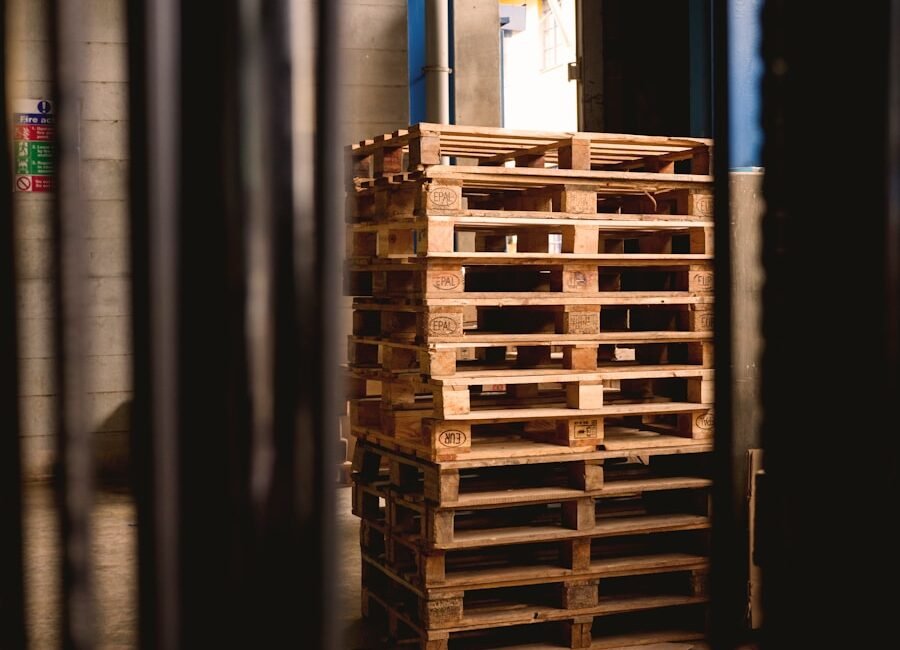Blockchain technology has been making waves in various industries, and the retail sector is no exception. At its core, blockchain is a decentralized, distributed ledger that records transactions across multiple computers in such a way that the recorded data cannot be altered retroactively. This technology has the potential to revolutionize the retail industry by providing a secure and transparent way to track and verify transactions, streamline supply chain processes, and enhance customer loyalty programs.
In the context of retail, blockchain technology can be used to create a secure and transparent record of all transactions, from the sourcing of raw materials to the sale of the final product. This can help retailers and consumers alike to verify the authenticity and provenance of products, which is particularly important in industries such as fashion and luxury goods where counterfeiting is a major concern. Additionally, blockchain can also be used to streamline payment processes, reduce transaction costs, and enhance customer loyalty programs, ultimately leading to a more efficient and secure retail ecosystem.
Improving Supply Chain Efficiency with Blockchain Integration
One of the key benefits of blockchain technology in the retail industry is its ability to improve supply chain efficiency. By using blockchain to create a secure and transparent record of all transactions, retailers can track the movement of goods from the point of origin to the point of sale. This can help to reduce the risk of fraud and theft, as well as improve inventory management and forecasting. Additionally, blockchain can also be used to automate and streamline supply chain processes, such as order fulfillment and inventory management, leading to cost savings and improved operational efficiency.
Furthermore, blockchain technology can also help to improve collaboration and trust between different parties in the supply chain. By creating a shared ledger that is accessible to all stakeholders, retailers can ensure that everyone has access to the same information, reducing the risk of disputes and delays. This can ultimately lead to a more efficient and responsive supply chain, with benefits for both retailers and consumers.
Enhancing Transparency and Traceability in the Retail Industry
Transparency and traceability are crucial aspects of the retail industry, particularly when it comes to ensuring the authenticity and provenance of products. Blockchain technology has the potential to enhance transparency and traceability by creating a secure and immutable record of all transactions. This can help retailers and consumers to verify the authenticity of products, as well as track their journey from the point of origin to the point of sale.
By using blockchain to create a secure and transparent record of all transactions, retailers can provide consumers with greater confidence in the products they are purchasing. This can be particularly important in industries such as food and pharmaceuticals, where traceability is crucial for ensuring product safety and quality. Additionally, blockchain can also be used to create a secure and transparent record of all transactions, which can help retailers to comply with regulatory requirements and industry standards.
Streamlining Payment Processes and Reducing Transaction Costs
Another key benefit of blockchain technology in the retail industry is its ability to streamline payment processes and reduce transaction costs. By using blockchain to create a secure and transparent record of all transactions, retailers can simplify payment processes and reduce the need for intermediaries such as banks and payment processors. This can lead to cost savings for retailers, as well as faster and more secure transactions for consumers.
Furthermore, blockchain technology can also be used to create more efficient and secure payment systems, such as smart contracts and digital wallets. This can help retailers to offer more flexible payment options to consumers, as well as reduce the risk of fraud and chargebacks. Ultimately, this can lead to a more seamless and secure payment experience for both retailers and consumers.
Revolutionizing Customer Loyalty Programs with Blockchain
Blockchain technology has the potential to revolutionize customer loyalty programs in the retail industry by providing a secure and transparent way to track and verify customer interactions. By using blockchain to create a secure and transparent record of all transactions, retailers can create more personalized and rewarding loyalty programs that are based on verifiable interactions rather than opaque points systems.
Additionally, blockchain technology can also be used to create more flexible and interoperable loyalty programs that can be used across different retailers and industries. This can help to create a more seamless and rewarding experience for consumers, as well as reduce the administrative burden for retailers. Ultimately, this can lead to more engaging and effective loyalty programs that benefit both retailers and consumers.
Ensuring Data Security and Privacy in Retail Operations
Data security and privacy are major concerns for retailers, particularly in an era of increasing cyber threats and data breaches. Blockchain technology has the potential to enhance data security and privacy by creating a secure and immutable record of all transactions. By using blockchain to create a secure and transparent record of all transactions, retailers can ensure that sensitive customer data is protected from unauthorized access or tampering.
Furthermore, blockchain technology can also be used to create more secure and private data storage systems, such as decentralized databases and encrypted data streams. This can help retailers to comply with data protection regulations such as GDPR, as well as provide consumers with greater confidence in the security of their personal information. Ultimately, this can lead to a more secure and trustworthy retail ecosystem that benefits both retailers and consumers.
The Future of Retail: Embracing Blockchain Technology for Enhanced Customer Experience
In conclusion, blockchain technology has the potential to revolutionize the retail industry by providing a secure and transparent way to track and verify transactions, streamline supply chain processes, enhance customer loyalty programs, ensure data security and privacy, as well as improve transparency and traceability. By embracing blockchain technology, retailers can create a more efficient, secure, and engaging retail ecosystem that benefits both retailers and consumers.
Looking ahead, it is clear that blockchain technology will play an increasingly important role in shaping the future of retail. As retailers continue to embrace digital transformation and seek new ways to enhance customer experience, blockchain technology will undoubtedly become a key enabler for achieving these goals. By leveraging the unique capabilities of blockchain technology, retailers can create more efficient supply chains, more engaging loyalty programs, more secure payment processes, as well as greater transparency and trust in their operations. Ultimately, this will lead to a more seamless and rewarding experience for consumers, as well as a more competitive and resilient retail industry as a whole.








